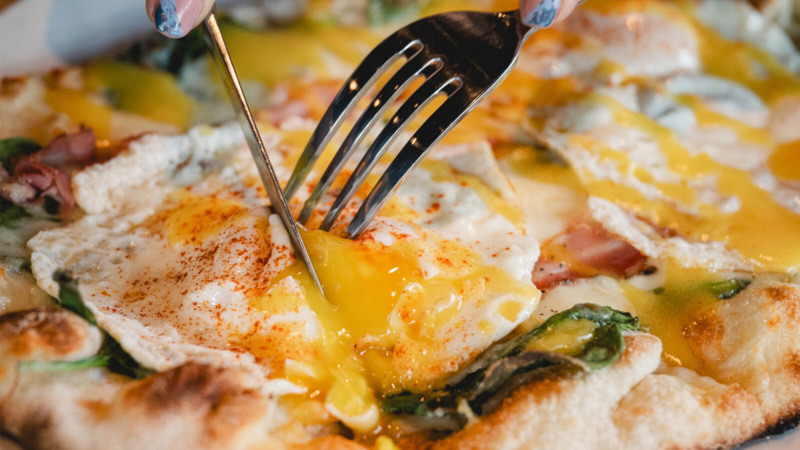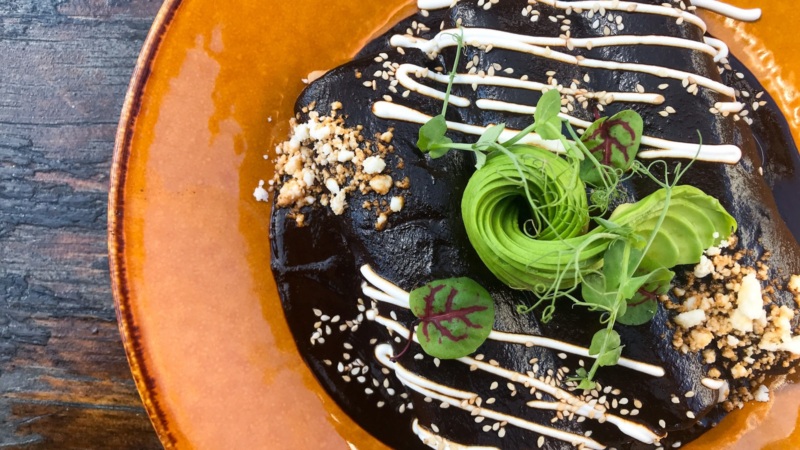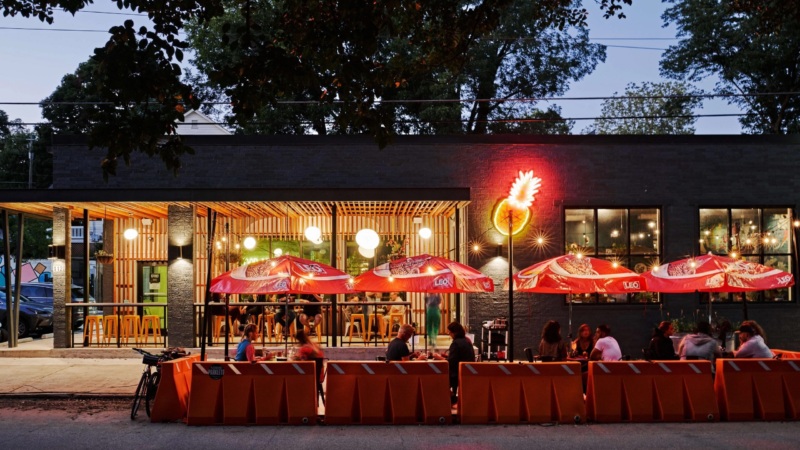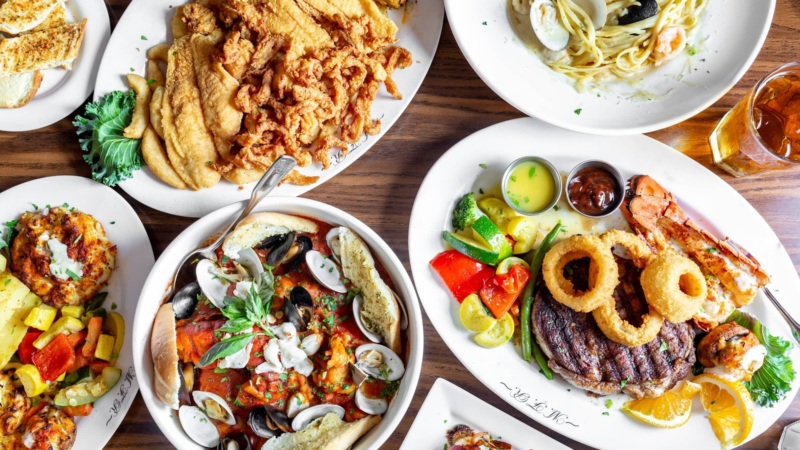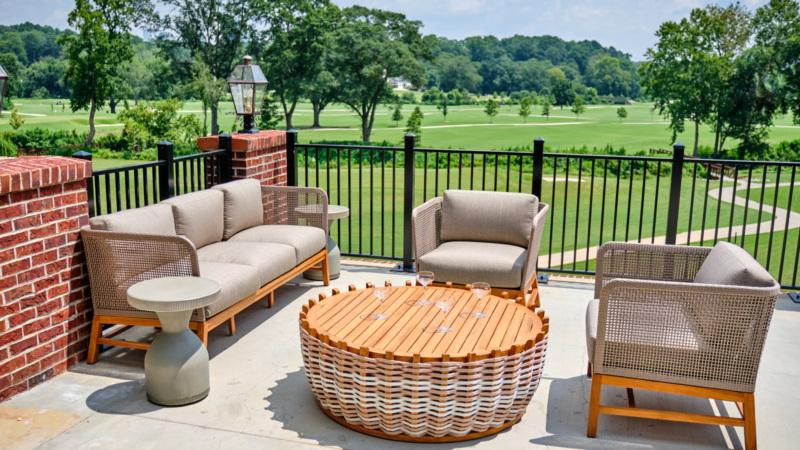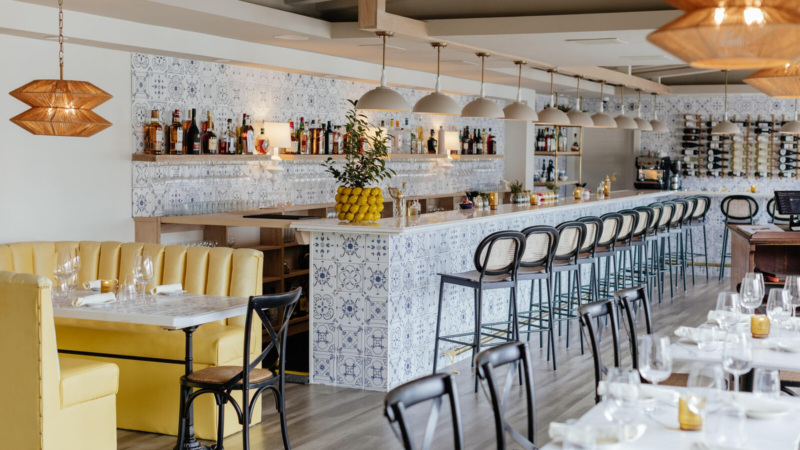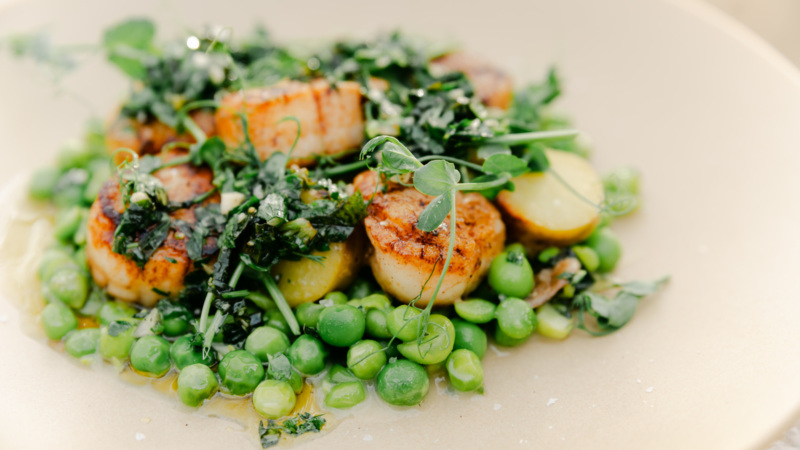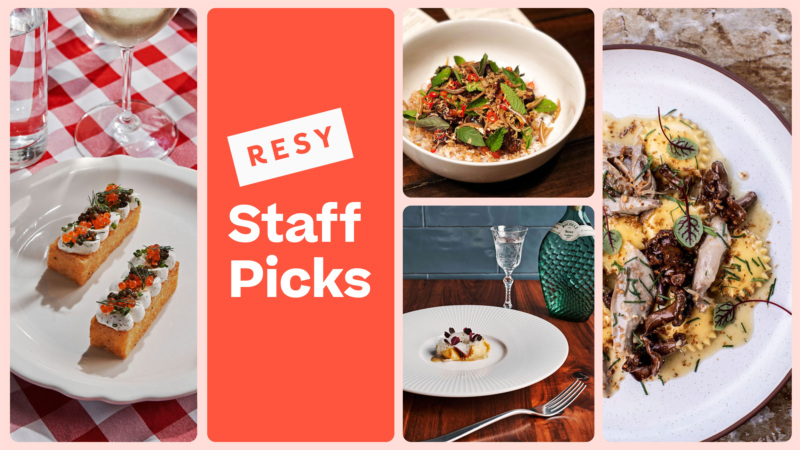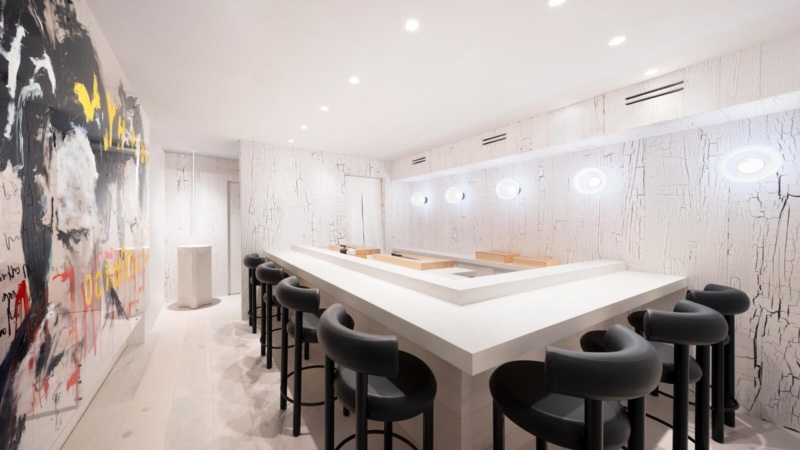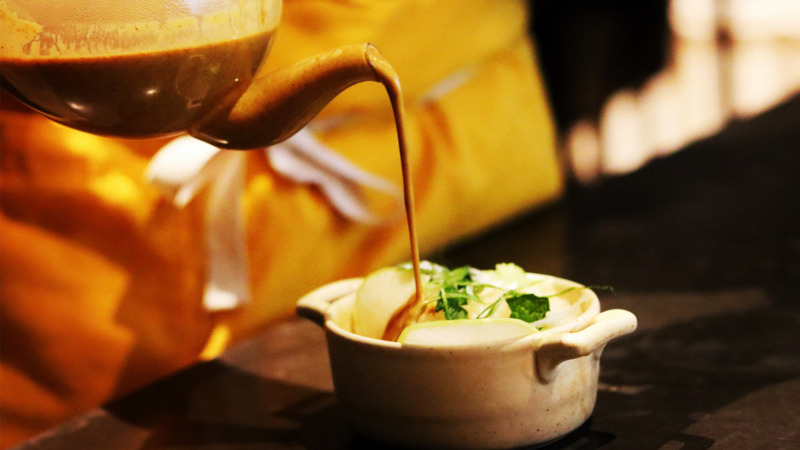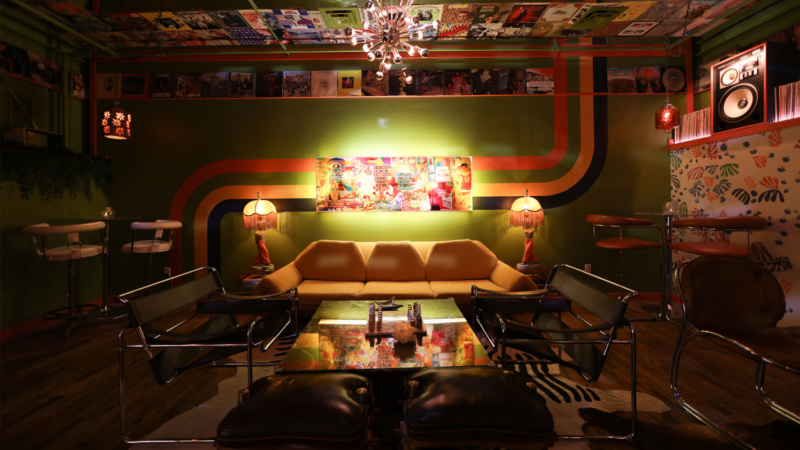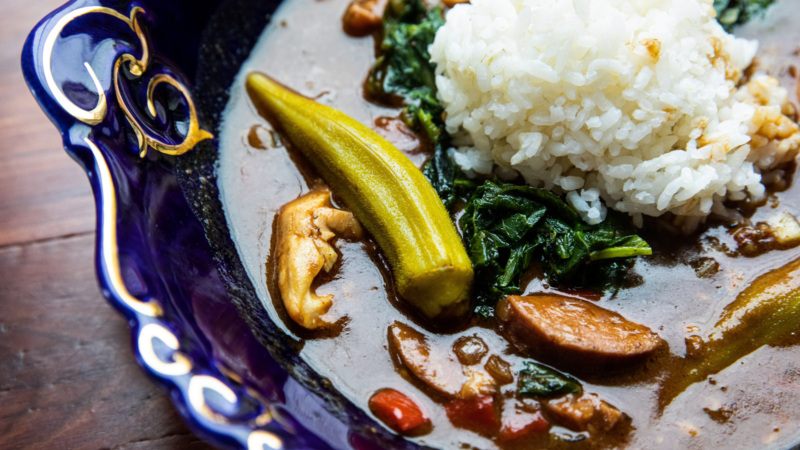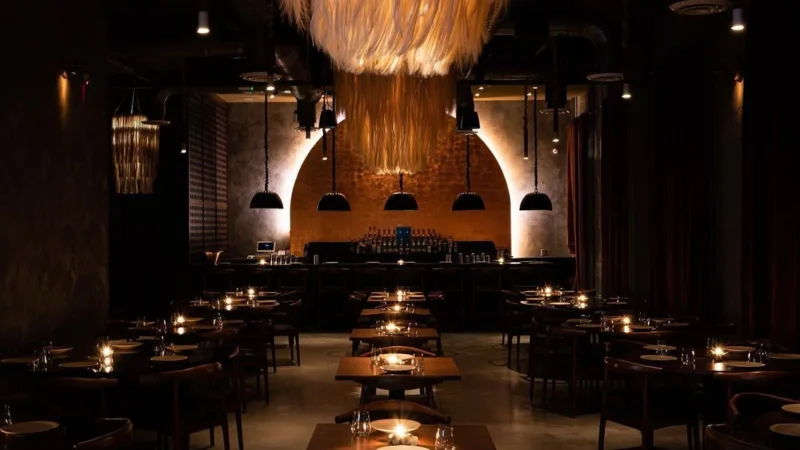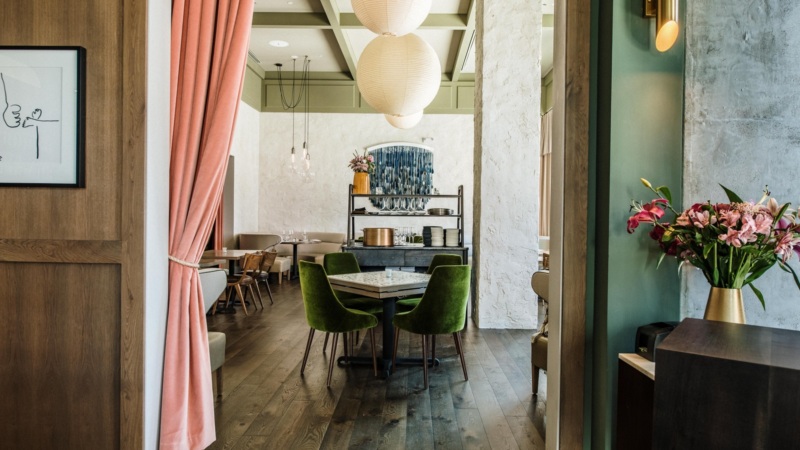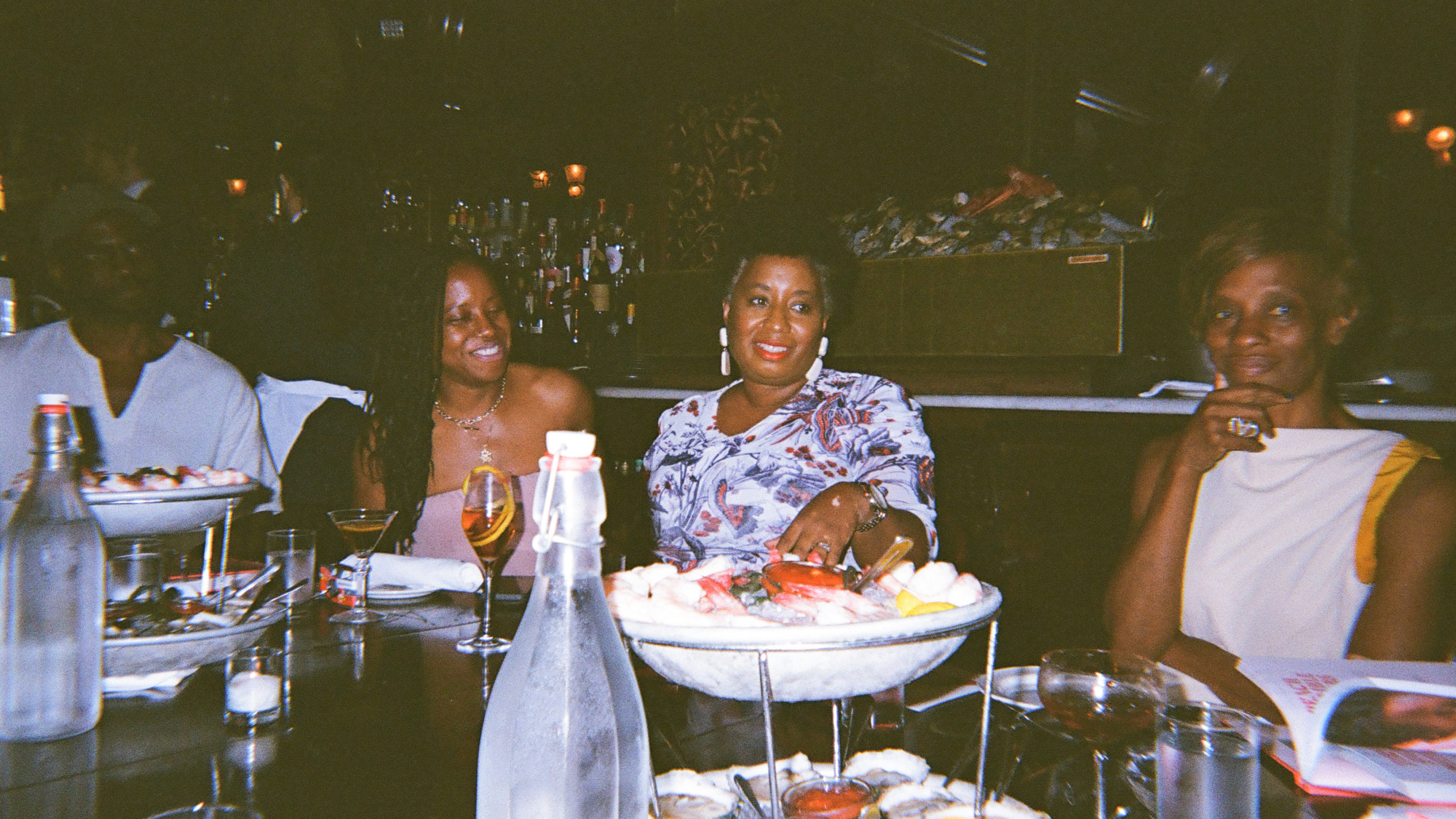
How Athens and Atlanta Dining Shaped Nicole Taylor’s Career
To commemorate the publication of her book, “Watermelon & Red Birds,” Nicole Taylor in partneship with Resy will be hosting an “Everyday Juneteenth Event Series” with The Plate Sale at The National in Athens. Book tickets for June 17 or June 19.
With the release of her new Juneteenth-inspired cookbook “Watermelon & Red Birds” (Simon & Schuster, May 2022) the first cookbook to celebrate the new federal holiday, acclaimed food writer Nicole Taylor has once again claimed her place at the top of food journalism. But long before the accolades, recent press coverage from major national press outlets, and her 2019 James Beard Foundation Award nomination for Innovative Storytelling, she was an Athens native attending college at Clark Atlanta University, one of several storied HBCUs in the Atlanta University Center, and dining her way to becoming one of today’s most respected voices in food media.
In preparation for a weekend of events in her hometown of Athens, including a conversation about “Watermelon & Red Birds” at Avid Bookstore and two Resy-sponsored Athens dinners themed around the new cookbook, we asked Taylor to describe for us what she learned dining in established restaurants and bars of Athens and Atlanta, and how her dining experiences would become central to her passion for culinary storytelling centered on Black identity in America.
Resy: Let’s start from where you got started, in Athens, Ga. What role did your hometown play in the development of your passion around food?
Nicole Taylor: I grew up in Athens; I am a fourth-generation Athenian. My great-grandfather came to Athens in the early 1900s. My grandfather and my mom were both blue-collar workers. My mother introduced me to eating out of the home. But going out to dinner was not a weekly thing; it definitely was a special occasion thing.
One of the first fine dining experiences I remember in Athens was Harry Bissett’s. It was New-Orleans-style, at a downtown location right on Broad Street. That spot is something else now, and later in life that same concept showed up somewhere else in Athens. That is the first time I remember going to a restaurant that was different from like, a Pizza Hut or Pizza Inn, which was very much an Athens thing. I grew up going to The Grill, and it was very different from The Grill, and Steverino’s — very fast-casual spots in Athens.
But yeah, Harry Bissett’s is the first place I remember, you know, getting a menu, sitting at the table, a waiter coming, putting the napkin in my lap. That memory’s kind of cemented in my head forever. And it’s so funny because in the 1980s and ’90s, Athens was so much about downtown. It wasn’t full of bars like it is now. But it very much for me has always been a place of discovery.
There’s sometimes an unwritten rule in Athens like downtown is only for students, or only for the towners. But my mother always gave me permission and showed me that like, this is your city. You can go down here and explore and eat. That really is a seed that translated to when I moved to Atlanta in the year of the Olympics, in 1996.
Not a bad time to arrive in ATL. What was that transition like?
The very immediate memories of me being in Atlanta, in a city where there were not just white college students getting cheap college food. I was able to see other Black people from all over the country standing in line, doing the same thing. I was wowed by that because I grew up in a college town. To be in the midst of something very different but also felt so familiar, I think it had an impact on me.
I remember so many days as a broke college student. Anytime I got any extra money, it was always about exploring Atlanta through food. I was at Clark Atlanta and the Atlanta University Center at a very exciting time. It was when the the church was still on the corner of MLK. There was a barbecue joint there. Stegall’s was still there. Gutbusters was near Morehouse campus. Marco’s Pita was doing sandwiches across from the library.
For me as a broke college student, you know, having extra money to go to these college hangs was super-important because that’s when I learned it was more about just the food. It was about the experience. I recall always feeling like if I got a good cafeteria meal on Sunday, it felt like home. But after I moved off campus, if I really wanted to feel like Sunday dinner, I would go to Busy Bee, which is a stone’s throw from Clark Atlanta’s campus. This was before you know, everybody was like talking about Busy Bee and they were on every freaking list.
I remember having this Discover card, and I would look at the bill after I’d gone to Houston’s, like, ‘Did I just go to Houston’s and spend $50? And I remember going to Atlanta Fish Market as a college student, and I thought I was the sh*t (laughs). That was a big deal for a college student. The strawberry shortcake at Mick’s — across from what is now Emory [Hospital] but was then Crawford-Long — I remember going in late at night, and just feeling very fancy, because I knew: this ain’t the Waffle House. This is something special.
I got to my senior year and and I got my first job outside of college at the American Cancer Society. My undergrad degree is in community health education, so I began my career working in nonprofits — that was my goal. It was never to be a food writer or cookbook author. But no one is surprised, because as I matriculated through Clark Atlanta and was staying on campus and off campus, my room or my apartment was always the place where people came because I was cooking good food. That food was influenced by me being able to go to dinner when I could.
Atlanta is the place I learned to create a list. I had the hot list before the hot list was the thing, and all my friends knew they could come to my house and my table was a celebration, but I also knew how to bring the celebration to restaurants.
Coming out of the Atlanta University Center as a college grad, how did your dining experience evolve?
I’m a young professional at this point, and if I had money to burn — even if I really didn’t have money to burn — it was The Shark Bar. Going in and seeing members of Goodie Mob, and looking at my watch and praying to God that I didn’t park in the wrong spot, or that my card would go through, or I had enough money to pay a parking attendant. When I think about that time I think about being broke, but still very much about the life, how to dine out, and how to create fun times with family and friends in the city.
People who are not Black from Atlanta don’t understand how iconic The Shark Bar and Justin’s were. I remember the cocktail and bar program at Justin’s. They had the best drinks at $15. They were good. Now people probably can pick them apart, like, ‘Oh, they were sweet, but they were on the cutting edge of what everyone is now doing: carving out a reputation as a place with good drinks where you sit at the bar.
At Justin’s I remember the red velvet cake, which was crazy. It was because it wasn’t like slice with layers. It was almost like a tart, another shape. I was blown away. As a country girl from Athens, I’m used to layer cakes. I was obsessed; every time I went I had to get the red velvet cake. It was beautifully constructed.
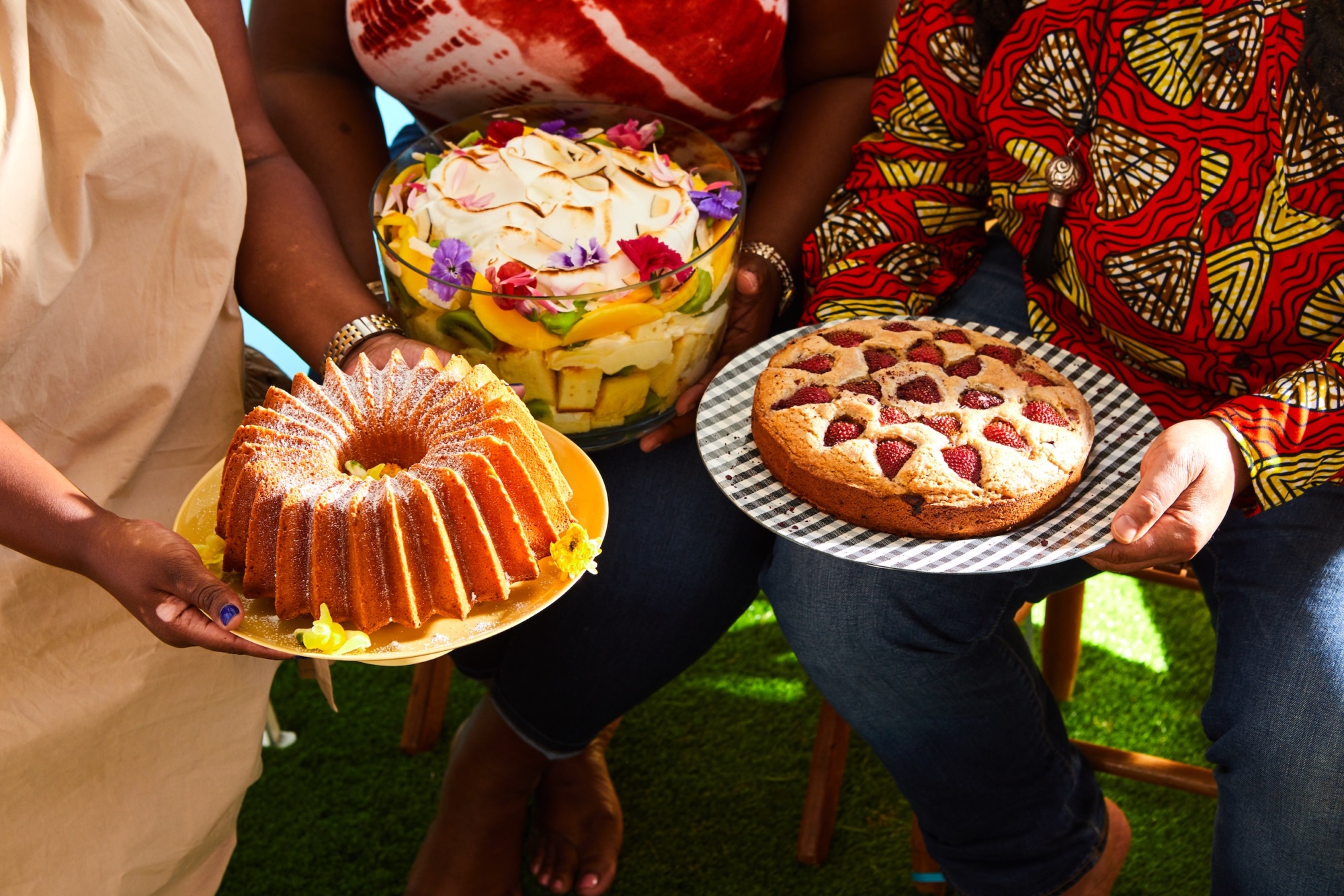
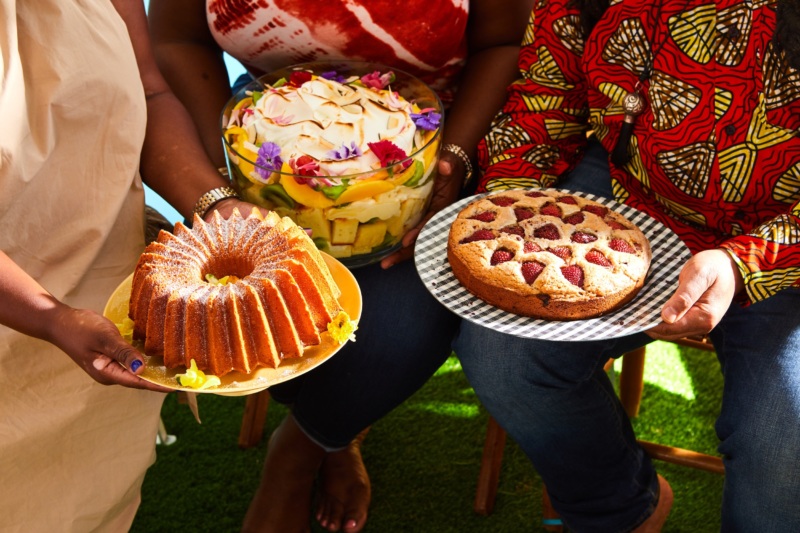
What a time to be alive … Any other places you remember fondly?
Other places in Atlanta from my early 20s were chain restaurants where you go when you’re young. Benihana on Peachtree was where you went on birthdays. I remember the first weekend at TWO Urban Licks, which was on the BeltLine before it was the BeltLine. They still have those crazy salmon chips.
In my friend circle I was known as the person who knew all the hot spots, and the places that weren’t hot spots but were rising, like Commune, which was the old JCT Kitchen. I remember when JCT Kitchen opened. I remember going to Murphy’s before brunch was the thing in Atlanta. It’s the place where I learned to create a list. I had the hot list before the hot list was the thing, and all my friends knew that. They knew they could come to my house, and my table was a celebration, but I also knew how to bring the celebration to restaurants.
At restaurants I would get inspired to do something at home, or to cook something a certain way at home, or to like, buy a waffle machine when chicken and waffles became a big thing. I’m like, Oh, should I make my own waffles at home? When I was living in an apartment in East Point I had midnight brunch party, which I talk about in “Watermelon & Red Birds.”
I made waffles, and I did chicken and turkey bacon. It was me recreating the chicken and waffles trend. I 100-percent give Gladys Knight’s Chicken & Waffles all the credit for that — for that tradition of me making waffles two to three times per month, from savory to sweet, on the weekends at my house. That was implanted in Atlanta. It was the hospitality — how to make any guest feel like they were special at all times.
At all of those places, I felt like a million bucks, like a celebrity. And I was broke as hell, praying that I had enough cash to tip. But every time I walked through the door at The Shark Bar, they were going to talk to you like you were family. When I lived in East Point, I was at Brake Pad like every week when they opened. They knew my order as soon as I hit the door. Those restaurants mastered making people feel like they were at home.
That feeling is a feeling I’m always chasing in restaurants — the feeling that you’re going to be taken care of. Not that you were going to be comped, but that your food was going to be great, and they wanted you to come back.
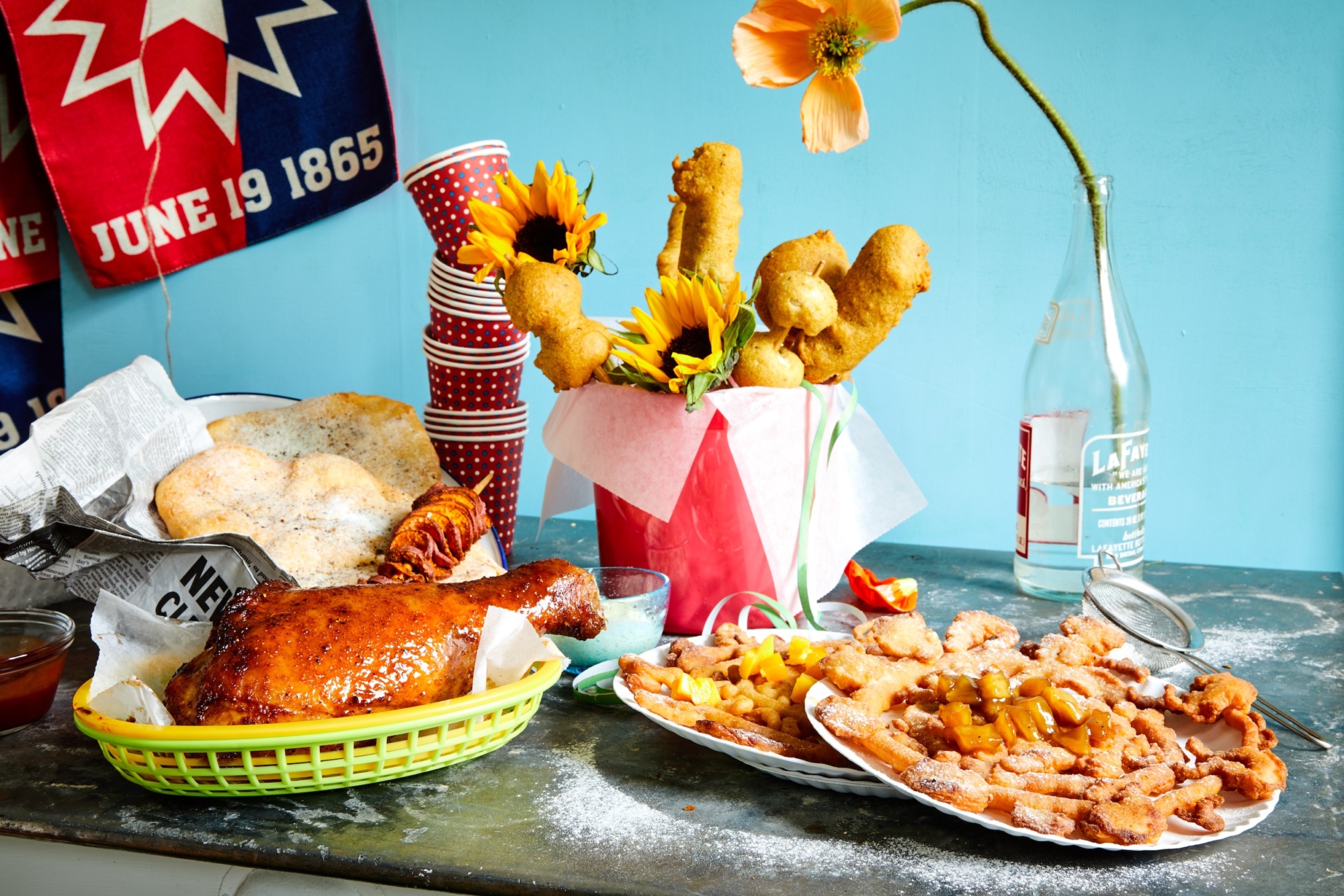
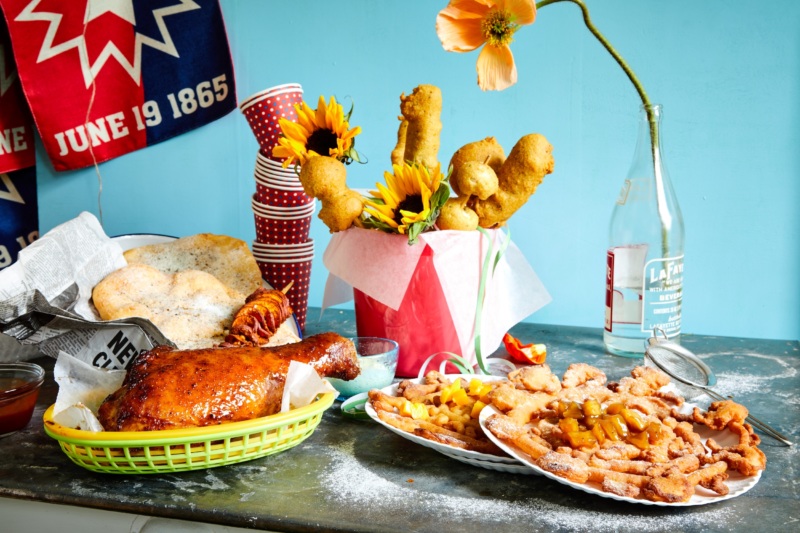
In what ways do you think the Atlanta of that era connects to the Atlanta dining scene of today? And are there places you think bridged that gap?
I was a huge fan of Edible Art back in the day. This was when Deborah VanTrece was still a flight attendant. My first serious couch was from Traders, which was right across the street from Edible Art. There was also a Black-owned pedicure and manicure place called Body Blows, and a Black-owned florist called Fluff & Em. I got turned on to Deborah’s food because for a dear friend’s birthday party we got food catered by Deborah. She had these freaking collard green rolls that my friend and I talked about for 20 years.
I finally made the connection when Twisted Soul opened that this was the woman behind Edible Art. She’s so much part of my memories of being in Atlanta and understanding the power of food. I blurbed her cookbook, and on the back of the book I talk about those collard green rolls — they were amazing. She deserves every bit of accolades she’s receiving right now.
My ongoing joke is that I’m chasing ghosts. I’m chasing that feeling. It’s hard to recreate a feeling from 25 years ago but there are some places in Atlanta that make me feel like that. Bomb Biscuits is one of those Black-owned, fast-casual spots that takes me back to that moment and to that period, and I love Erika Council. When I go in there and sink my teeth into the lemon pepper chicken biscuit, it makes me feel like the first time I went to American Deli at The Mall West End Mall and got lemon pepper wings.
There are some bars that give me the vibes of Justin’s, like Parlor Den. And Rodney Scott’s Whole Hog BBQ — when I sit in the parking lot, just seeing people pulling up gives me the vibe of the West End at a different time, like picking up a big order of food from Chanterelle’s [editor’s note: now closed] for a special occasion or the holidays.
A lot of my exploration of Atlanta after I left, I’d moved to this professional space where I’m writing about food, not just entertaining people. I became a grown woman; I learned how to be in Atlanta. And my relationship is still about collecting names, exploring and going out to those places to figure out how I can put these folks on the national stage if I have the ability to do that. That’s what Atlanta is for me now.
But talking about now, when I come back to Atlanta after living in New York from 2008 up until the start of the pandemic, I’ve been chasing the feelings. I’ll see someone’s name and Google them, and see or hear through the grapevine that they’re a person of color, and I’ll be trying to get a reservation there.
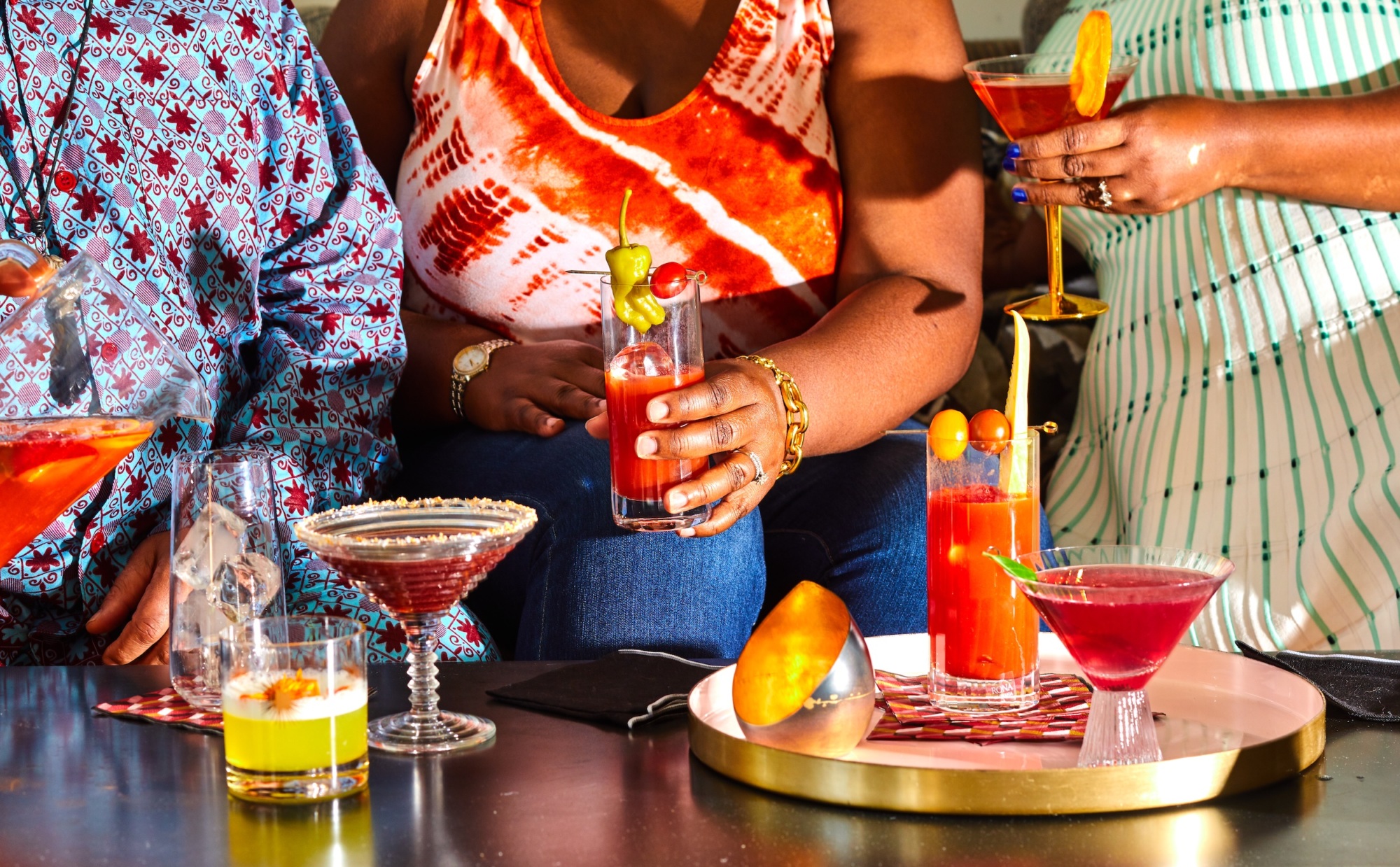
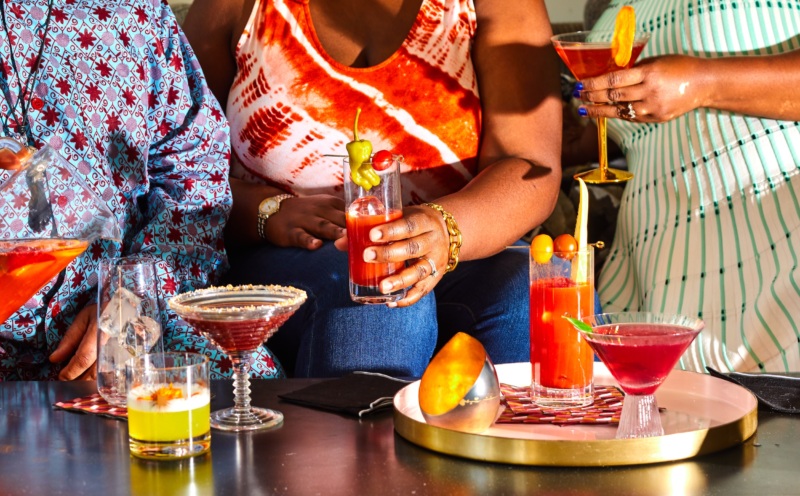
Back to Athens, where it all started. I’ve noticed that some Atlantans, particularly Black Atlantans, aren’t always familiar with some of Athens’ better restaurants and bars — almost as if there’s a knowledge gap that’s keeping more people from enjoying fantastic experiences in your home city. Would you agree?
I love downtown Athens so much. I feel like there’s so much history and culture in downtown that gets overlooked.
Athens is a college town. The reputation is bars and beer, and that’s a great reputation. If you’re into beer culture it’s one of the great cities in the South to explore beer. People love Creature Comforts, but a lot of people don’t know their Automatic beer traces back its name to R.E.M., which traces back to Weaver D’s, an iconic soul food restaurant in Athens. Their slogan was “Automatic for the people.” That’s where R.E.M. got the name from. That’s the beer I think defines beer in Georgia.
One of my favorite places to eat in Athens is ZZ & Simone’s. It reminds me of New York. The energy is not stuffy and the food is great, and they have great, innovative pizza like their Meyer lemon pizza. They’ve really created something special. It feels like the iconic Roberta’s pizzeria in New York, mixed with Missy Robinson. I like the vibe. When my New York friends come to Athens, I take them there.
I also like taking people to The National for lunch, then walking over to Hot Corner, which is the historic Black business district in downtown Athens, where you’ll find the Morton Theatre, one of the only stading Black Vaudeville theaters in the country that’s still up and running, and still serving a purpose.
And Mike and Shyretha Sheats: we bonded over food, but as we talked more and more, we bonded over old Athens and old Atlanta restaurants. Mike is a bit younger than me. I met them because they were doing a pop-up at Hendershot’s. They basically had come back to Athens. They both work in hospitality and fine dining. Both of them are Staplehouse alums, and their pop-up had some of the best food in Athens, even in Atlanta.
You have Wilson, the barbershop that’s always been there. That little corner, and the murals all around the Hot Corner area are so special. They speak to Black life in Athens, and show that Black life and culture existed in Athens, and it still exists.
It always points back to the American South in some weird way, and it flows through my kitchen and back through another restaurant I want to try again. I keep a list of restaurants that I’ve always wanted to go to, even in New York. What am I missing out on? And what is the future?
Now that I’m back living in the South part-time, I need to get my list back up. Juneteenth and post-pandemic is a good time for me to adjust my list.
Mike Jordan is Resy’s Southeast editor, and a longtime Atlanta-based multimedia journalist. His byline can be frequently found at The Wall Street Journal, Atlanta Magazine, Playboy, Rolling Stone, Eater Atlanta, and Thrillist, where he served as the founding Atlanta editor. Follow him on Instagram and Twitter. Follow Resy, too.
Discover More
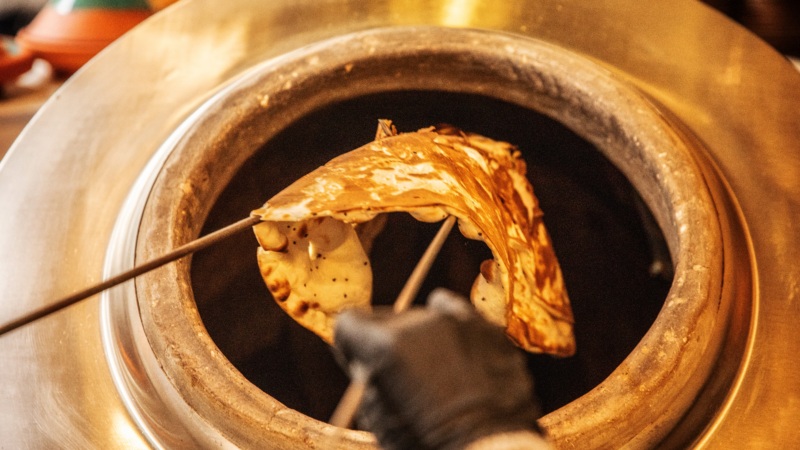
Stephen Satterfield's Corner Table









